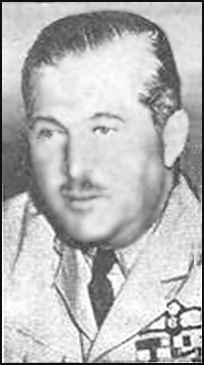
1894-1956 AKA Billy Bishop |
 |
appeared in World War II. |
|
AIR ACE, IS DEAD Canadian Air Marshal Shot Down 72 Planes in World War I---Often Deocrated Special to The New York Times -----Air Marshal William Avery Bishop, leading Canadian ace of World War I who was in charge of Canadian Air Force recruiting in Ottawa during World War II, died at his home here today. He was 62 years old and had been in ill health for two years. He took part in more than 170 air battles and was credited with having shot down seventy-two planes during World War I. His accomplishments won for him the Victoria Cross, the Distinguished Service Order, the Military Cross, Distinguished Flying Cross, Chevalier of the Legion of Honor, the Croix de Guerre and many other decorations. Survivors include his widow, a son, Arthur William and a daughter, Mrs. Raymond Willis O'Connor. After World War I, Billy Bishop barnstormed in the United States and Canada for a while, then gave up flying for business. In 1937, after a lay-off of fifteen years, he learned how to fly again. Born in Owen Sound, Ont., Feb 8, 1894, the son of William Avery Bishop and Margaret Louise Greene Bishop, he attended Owen Sound Collegiate School and Royal Military College, Kingston, Ont. A cadet, 20 years old at the Royal Military College when World War I started, he was sent to England with the Seventh Canadian Mounted Rifles. He found himself bogged down in a cavalry encampment where English mud was stickier and wetter than any he had seen. He applied for a transfer to a flying squadron and went into action in France in 1915 as an observer. Shortly afterward his pilot made a bad landing and Air Marshal Bishop suffered an injured knee. By the time his injury had healed in March, 1917, he had completed training as a pilot. Noted for his "hawk attack," he would roam alone back and forth across enemy territory until some German flier crossed his path. Once he had seen his adversary he dove at him with a straight, hawk-like swoop. Roving in his single seater Nieuport Scout, he scored many victories, was promoted to captain and celebrated the promotion by engaging twenty-three enemy planes in one day, destroying three of them. He received the Distinguished Service Order for this feat. A few weeks later he won the Victoria Cross "for most conspicuous bravery, determination and skill." The then Captain Bishop on this occasion shot down three German planes over enemy territory despite machinegun fiire from the ground. On his return trip to his base he was followed by four other enemy planes, but they would not attack. In twelve days of May, 1918, he brought down twenty-five enemy planes. On his last day of flying at the front he shot down five. After the war he lectured on air warfare in the principal cities of the United States from 1919 to 1920 and made frequent visits at American air races. He wrote a number of Books, including "Winged Warfare," "The Flying Squad," "Hunting the Huns in the Air" and "Winged Peace," the last published here in 1944. Air Marshal Bishop applied his skill to the development of aviation in his homeland and then, after a few years, went into business, becoming vice president of McColl Frontenac Oil Company, Ltd. and a director of the English Electric Company of Canada, Ltd. |
|
|
Air Marshal William Avery Bishop, leading Canadian ace of World War I who was in charge of
Canadian Air Force recruiting in Ottawa during World War II, died at his home here today, Sept 11, 1956. He was 62 years old and
had been in ill health for two years.

|